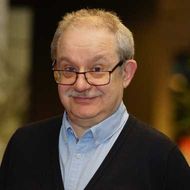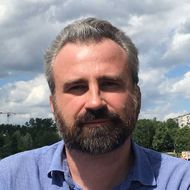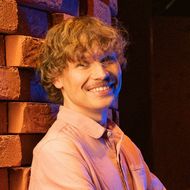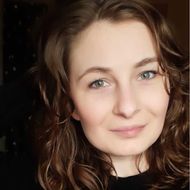- A
- A
- A
- АБB
- АБB
- АБB
- А
- А
- А
- А
- А
- Национальный исследовательский университет «Высшая школа экономики»
- Факультет социальных наук
- Департамент социологии
- Мероприятия
- Международный семинар департамента социологии “The Transcendence of the Social: Durkheim, Weismann, and the Purification of Sociology”
-
Подразделения
- Кафедры
- Базовые кафедры
-
Образование
- Бакалавриат
-
Магистратура
-
- Магистерская программа «Комплексный социальный анализ»
- Магистерская программа «Социальный анализ рынков на цифровых и опросных данных»
- Магистерская программа «Социология публичной сферы и цифровая аналитика»
- Магистерская программа «Сравнительные социальные исследования»
- Магистерская программа «Демография»
-
- Аспирантура
- Открытые онлайн-курсы
- Школа маркетинговых исследований
-
Департамент
- О департаменте
- Научная деятельность
- Журналы
- Методические материалы
- Сотрудники
Адрес: 101000, Москва,
ул. Мясницкая, д. 11.
Телефон:
8 (495) 772-95-90*12349
E-mail: izangieva@hse.ru
Наша миссия – научить видеть, думать и действовать. Видеть – проблемы современного общества; изменения, происходящие в его социальной структуре. Думать – свободно, доказательно, открыто. Действовать – на благо обществу, осуществляя свои профессиональные проекты. Для этого мы стремимся к совершенству в преподавании и исследовательской деятельности, создавая атмосферу, благоприятную для обмена опытом и знаниями между преподавателями и студентами.
Rozhdestvenskaya E., Isupova O.
Switzerland: Springer, 2024.
Пути России. Журнал cоциальных и этнографических исследований. 2024. Т. 2. № 2. С. 66-79.
Rozhdestvenskaya E., Isupova O.
In bk.: Biographical Perspectives on Lives Lived During Covid-19 Global Narratives and International Methodological Innovations. Switzerland: Springer, 2024. Ch. 7. P. 147-166.

Международный семинар департамента социологии “The Transcendence of the Social: Durkheim, Weismann, and the Purification of Sociology”
.png)
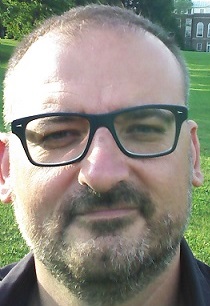
Докладчик: Др. Маурицио Мелони (Department of Sociological Studies, Sheffield University, Sheffield, UK)
Тема доклада: “The Transcendence of the Social: Durkheim, Weismann, and the Purification of Sociology”.
Время: Вторник 30 мая, 18:10.
Место: Мясницкая улица 11, Аудитория 422.
Рабочий язык: английский.
Для заказа пропуска в НИУ ВШЭ необходимо написать Екатерине Соколовой (ksokolova@hse.ru).
Аннотация:
Building on Fox Keller’s acute genealogy of the nature–nurture opposition as located in a certain specific social, cultural, and political history in the late nineteenth century (2010), in this paper, I address a parallel problem: the making of a really modern (i.e., non-biological) sociology nearly at the same time as the “hard disjunction” (Keller, 2010) between heredity and the environment, nature and nurture, was made. I argue rather provocatively that traces of borrowing from hard heredity to sociology can be seen in Durkheim’s strategic usage of Weismann to destroy Lamarckian sociology. The transcendence of the social in Durkheim is entirely isomorphic to Weismann’s transcendence of the germ plasm: in both cases, they aimed to construct objective realities, radically independent and exterior from individual tendencies and peculiarities. Weismann offered Durkheim an important scientific companion to make boundaries between sociology and biology. In a Latourian sense (Latour, 1993), the purification strategy of Durkheim was actually helped by a hybridization with Weismann’s biology. In conclusion, by taking Weismann as an anticipator of the genetics revolution a few years later, I argue for a profound complicity between twentieth century non-biological sociology and genetics. They both made space for a neat distinction between biological heredity and sociocultural transmission, heredity, and heritage. If sociology and genetics thought of themselves as rivals and even enemies in explaining social facts, they should reconsider their positions.
- О ВЫШКЕ
- Цифры и факты
- Руководство и структура
- Устойчивое развитие в НИУ ВШЭ
- Преподаватели и сотрудники
- Корпуса и общежития
- Закупки
- Обращения граждан в НИУ ВШЭ
- Фонд целевого капитала
- Противодействие коррупции
- Сведения о доходах, расходах, об имуществе и обязательствах имущественного характера
- Сведения об образовательной организации
- Людям с ограниченными возможностями здоровья
- Единая платежная страница
- Работа в Вышке
- ОБРАЗОВАНИЕ
- Лицей
- Довузовская подготовка
- Олимпиады
- Прием в бакалавриат
- Вышка+
- Прием в магистратуру
- Аспирантура
- Дополнительное образование
- Центр развития карьеры
- Бизнес-инкубатор ВШЭ
-
http://www.minobrnauki.gov.ru/
Министерство науки и высшего образования РФ
-
https://edu.gov.ru/
Министерство просвещения РФ
-
http://www.edu.ru
Федеральный портал «Российское образование»
-
https://elearning.hse.ru/mooc
Массовые открытые онлайн-курсы
- © НИУ ВШЭ 1993–2024 Адреса и контакты Условия использования материалов Политика конфиденциальности Карта сайта
- Редактору

